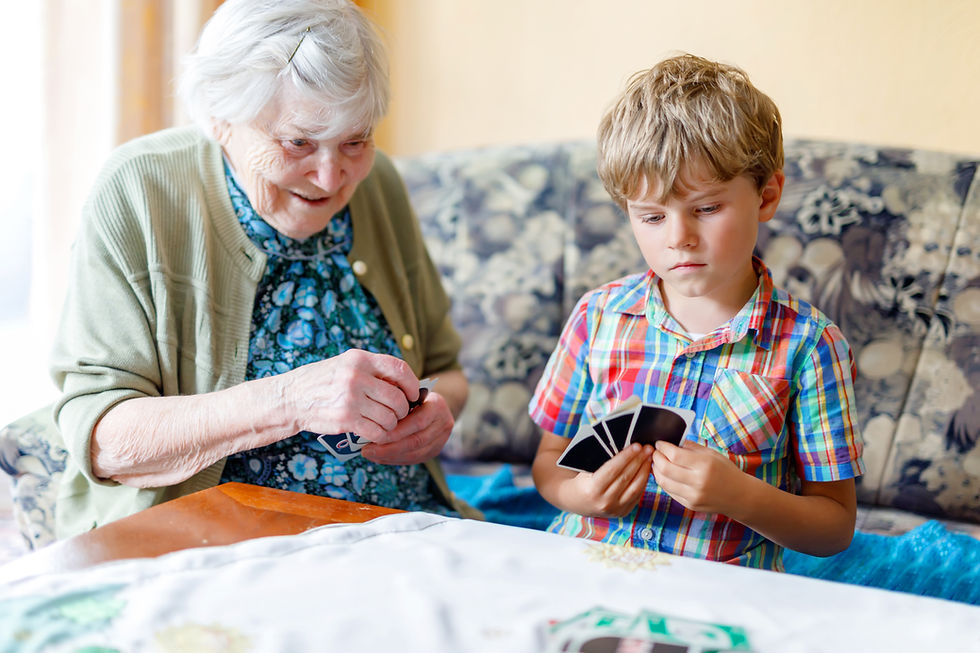Top Advice For Parents Regarding Children With Executive Functioning Struggles
- amykdtobik2
- Jun 12, 2023
- 5 min read
Updated: Apr 7, 2024

By Karen Kaplan
Executive functioning explained Executive functioning skills consist of specific cognitive processing skills necessary to learn, work, live, and function daily. These are areas involved in positive executive functioning.
Controlling Impulses The ability to think before speaking, resist temptation, and think about choices and consequences of behaviors before acting.
Flexibility in Thinking The ability to think about different ways to solve problems, adjust to new situations, learn from mistakes, cope with routine changes, try new things, switch between tasks, and learn new things.
Emotional Control The ability to regulate emotions, choose which ones are appropriate in any given situation, and maintain them under pressure.
Memory The ability to follow instructions, pay attention, and use relevant information while in the middle of an activity.
Self-Monitoring The ability to have self-awareness in the moment in order to adjust actions or behaviors to the current situation.
Planning and Prioritizing The ability to plan daily tasks in order to meet short and long-term responsibilities.
Starting Tasks The ability to motivate oneself to begin tasks by directing behaviors and actions.
Organizing The ability to gather and keep track of information and belongings.
For some children, executive function issues may present as trouble controlling impulses, tantrums, and difficulty regulating emotions. For others, challenges with school organization, time management, and remembering instructions are more visible. Adolescents who struggle with executive function may struggle to make plans and reach independence.
Harvard Health Center states that there is no one-size-fits-all intervention to improve executive functions in children. The best approach is to consider each child's strengths and vulnerabilities and each family's needs and functioning. Parent-child relationships are key. The family's constant support, shared experiences, and time spent together help scaffold children's self-regulatory skills.
Top advice for parents regarding children with executive functioning struggles:
Your kiddo needs to feel a sense of hope, not failure.
Parents need to see challenges not as WON'T but as CAN'T. Shift your mindset.
Your child needs you to run a consistent, predictable household. Manageable routines across the day are crucial. No matter how old your child is, they benefit from visual schedules, social stories, and checklists to help navigate their days.
Mantras you may use to help your kiddo: We know you are trying your best. Everyone needs help with something. Your brain works differently, and that is okay with us. We have tools to help you succeed. You can do this, and we are here to help.
Stop all the 'Nos' and tell them what they can do. If they are making loud noises, instead of telling them, "No, stop it," suggest they could whisper, lower their voice, or move into another room.
Remember that your child takes more time to process what you are saying. Allow them time, offer reminders, and check for understanding.
Teach life skills, such as jobs and chores, early. Such skills increase problem-solving, organizing, starting, and finishing. Possible tasks include laundry, setting the table, making lunch, and putting clothes away after washing.
Set up basic household rules early. How to Create Family Rules with Kids - Happy Teacher Mama
Terrific activities for school-age children:
Guessing games
Games like 20 Questions or I Spy teach kids how to think in categories ("I spy something green…"), and they need to use their working memory to keep track of all the criteria for the object they are trying to guess.
Board games and card games
Lots of card games can teach executive functioning skills, but a favorite is Uno — it's a game where the order of play can change rapidly, and kids have to keep track of colors and numbers, and is a more intense version of the card-sorting game above). Other matching games are great, too. You can find more brain-enhancing games for school-aged children here.
Simon Says
Simon Says is a classic game that teaches both inhibitory control and cognitive flexibility: "I did not say 'Simon says!'" Kids need to curb the impulse to respond to "jump up and down" when they hear the words without the requisite "Simon says." For younger kids, you could play a game where you hold two stuffed animals, and they only do the actions one of the stuffed animals tells them to do.
Minecraft
Some say this game helps build executive functions as it requires kids to keep various fantasy locations in mind. They must follow specific rules about how different characters and materials can be used and develop strategies to meet their goals.
Suggested books for all ages
Kids
Parents
Teachers
Sources
Calderon, J., PhD (2020, December 16). Executive function in children: Why it matters and how to help. Harvard Health Publishing. https://www.health.harvard.edu/blog/executive-function-in-children-why-it-matters-and-how-to-help-2020121621583
For free resources on managing diagnoses, mobility, and accessibility support, self-advocacy, personal rights, educational rights, occupational therapy, mental health support, schools and camps, transitioning to adulthood, job opportunities, financial planning, supporting the family/caretakers, subscribe to Exceptional Needs Today. Subscribing to our award-winning e-magazine is free, and it enables us to connect with more readers, helping us support the special needs community more effectively. We publish a new issue every quarter - delivered straight to your email.

Karen Kaplan, MS, founded a non-profit, Offerings, which helps cultures globally to understand those with developmental challenges. For seven years, she founded and facilitated an autism lecture series and resource fair in Northern California. Karen still facilitates an annual Autism Awesomeness event. She is currently consulting, helping families, schools, and centers for children, teens, and adults. Karen has authored three books: Reach Me Teach Me: A Public School Program for the Autistic Child; A Handbook for Teachers and Administrators, On the Yellow Brick Road: My Search for Home and Hope for the Child with Autism, and Typewriting to Heaven… and Back: Conversations with My Dad on Death, Afterlife and Living (which is not about autism but about having important conversations with those we love).



Comentários